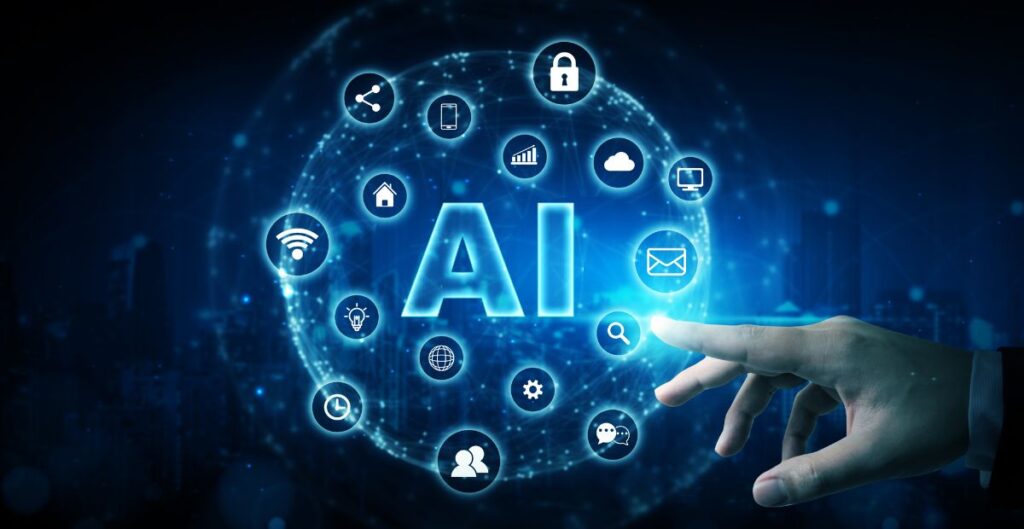AI is modernizing healthcare systems by implementing various organizational alternatives. AI assists medical practitioners in disease diagnosis while scientists conduct medication breakthroughs and healthcare institutions enhance their services to patients. The adoption of AI technology enables healthcare providers to provide prompt patient services at reduced costs for international patient populations.
The Business of AI in Healthcare Podcast provides an excellent foundation for understanding the ways AI reshapes medical practice. The podcast provides truthful healthcare success narratives professional insights and updates about modern AI medical technology.
This article explores the medical applications of AI along with its advantages and the strategic value of market investment in this developing field.
- 🔎 AI in Medical Diagnosis: Detecting Diseases Faster
- 💊 AI in Drug Discovery: Making Medicines Faster and Cheaper
- 🤖 AI Virtual Assistants: Helping Patients Anytime, Anywhere
- 🏥 AI in Hospital Management: Reducing Waiting Times & Costs
- 📈 AI in Healthcare Business: A Growing Industry
- ❓ Frequently Asked Questions (FAQs)
- 🎙️ Why You Should Listen to The Business of AI in Healthcare Podcast
- 💡 Final Thoughts
🔎 AI in Medical Diagnosis: Detecting Diseases Faster
Medical practitioners deploy AI systems to identify diseases at earlier stages with higher detection precision. AI tools analyze X-rays along with MRI scans and lab tests using a speed of seconds.
For example, Google’s DeepMind built an AI system that performs eye diseases and cancer detection equally well as skilled doctors. Medical care has made a significant advancement because of this development:
✔️ Patients get diagnosed sooner
✔️ Treatments start earlier, increasing survival rates
✔️ Hospitals save time and resources
A doctor shared a real-life example on The Business of AI in Healthcare Podcast:
“A patient came in for a routine checkup. Traditional tests showed no serious issues, but an AI-powered scan detected an early-stage tumor. Thanks to AI, the cancer was treated before it could spread!”
The life-saving features of artificial intelligence emerge because AI systems identify diseases at earlier stages.
💊 AI in Drug Discovery: Making Medicines Faster and Cheaper
The development process for new medicines consumes extensive periods of time and expensive resources. Drug development requires 10-15 years and involves spending large amounts of billions of dollars. AI is changing that.
Scientists now use AI to analyze millions of chemical compounds in minutes. AI helps find the best drug formulas faster than humans can. A medical research company like Insilico Medicine partnered with Atomwise to create fast drug solutions for cancer patients together with treatments for Alzheimer’s and COVID-19.
Benefits of AI in drug discovery:
✔️ Speeds up new medicine development
✔️ Reduces costs for pharmaceutical companies
✔️ Makes treatments more affordable for patients
By using AI engineers manage to test and approve medication at a faster rate than traditional systems thus delivering essential drugs to patients at an unprecedented speed.
🤖 AI Virtual Assistants: Helping Patients Anytime, Anywhere
Healthcare institutions are now regularly integrating AI-based chatbots together with virtual assistant systems into their operations.
These smart assistants help patients 24/7 by:
✔️ Answering health-related questions
✔️ Checking symptoms and suggesting next steps
✔️ Helping schedule doctor appointments
✔️ Reminding patients to take medicines on time
For example, Ada Health presents an AI-supported application where users can assess symptoms through mobile devices to receive professional medical advice.
The tools help decrease hospital visits that could be avoided while offering immediate medical assistance during minor health problems. Healthcare services become more accessible because these solutions provide access to medical assistance, particularly in remote locations.
🏥 AI in Hospital Management: Reducing Waiting Times & Costs
The utilization of AI in healthcare enables institutions to sort medical files and book appointments as well as make projections about upcoming requirements. AI can:
✔️ Reduce patient waiting times
✔️ Help emergency rooms prepare for incoming patients
✔️ Manage hospital staff efficiently
For example, The AI system from Qventus helps hospitals determine necessary ICU bed projections in advance. Hospitals can better plan services by utilizing this approach and prevent facility congestion.
Artificial Intelligence operates hospitals by maintaining operational efficiency which ensures patients receive timely medical service.
📈 AI in Healthcare Business: A Growing Industry
The marketplace dedicated to AI healthcare continues to expand at an unprecedented rate. AI market in healthcare is projected to exceed $187 billion during 2030. Businesses that invest in AI technology during current times will generate substantial returns in the future.
Businesses can use AI to:
✔️ Develop new medicines faster
✔️ Improve patient care services
✔️ Create AI-powered medical tools and apps
✔️ Automate hospital operations and reduce costs
At present medical and business stakeholders should investigate the possibilities for AI healthcare applications since this represents their most advantageous research window.
❓ Frequently Asked Questions (FAQs)
1. How does AI help in healthcare?
Artificial Intelligence supports medical professionals in fast disease diagnosis as well as pharmaceutical development while enhancing hospital organization and assessment technologies. The system also offers AI-powered healthcare assistance to interact with patients.
2. Can AI replace human doctors?
No, AI helps doctors through their medical practice instead of functioning as their medical substitute. AI systems deliver rapid effective medical assessment to doctors though physicians retain authority to make all final healthcare decisions.
3. How can businesses use AI in healthcare?
Businesses can use artificial intelligence to produce new medicines while simultaneously improving operational efficiency in hospitals for the development of AI-assisted healthcare services. Technology progress enables companies to cut down costs while producing higher income streams.
4. Where can I learn more about AI in healthcare?
Use The Business of AI in Healthcare Podcast as an educational platform to receive real-time updates about modern medical innovations based on artificial intelligence.
🎙️ Why You Should Listen to The Business of AI in Healthcare Podcast
This podcast covers:
✔️ The latest AI trends in medicine
✔️ How AI is helping doctors and patients
✔️ Expert interviews with AI professionals
✔️ How businesses can profit from AI in healthcare
The AI revolution requires this podcast for anyone who wants to maintain their leadership position.
💡 Final Thoughts
Each day AI technology implements changes across the health sector. It helps doctors diagnose diseases faster, improves hospital operations, and makes treatments more affordable.
Want to stay informed? Listen to The Business of AI in Healthcare Podcast and learn about the latest AI breakthroughs in medicine!






